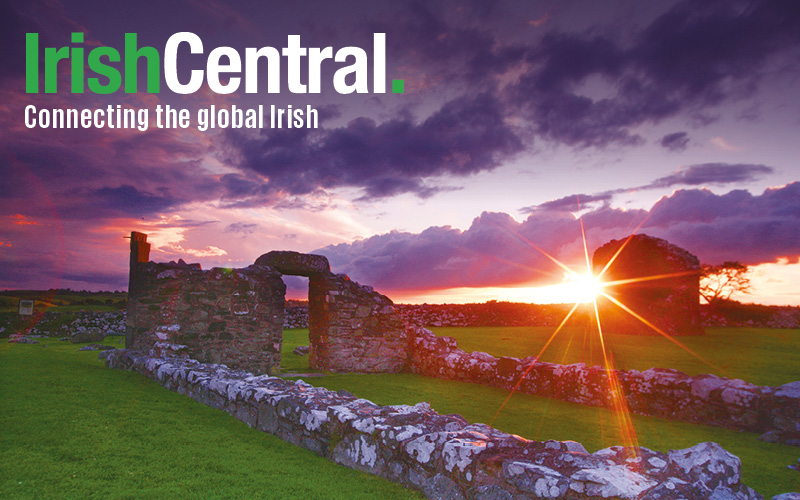| Horse meat controversy continues in Europe |
Don't you love the way the Irish laugh in the face of adversity? Whatever the problem is, you can count on us to turn it into a joke. And let's face it, this horse meat scandal was just made for it ... it's all over Facebook and Twitter here.
There are the ones that give advice on ordering in an Irish restaurant: "I'll start with some horse d'oeuvres before I go on to the mane course."
There are the obvious ones: "So that's what happened to Shegar!" "I just checked the burgers in the freezer -- and they're off!" "It’s tough working on the meat counter in Tesco these days - I feel like I’m flogging a dead horse." "My brother ate two burgers yesterday and ended up in hospital - but it's OK, he's stable!"
There are the clever ones like "A horse walks into a bar. The barman says sorry mate, we don't serve food in here."
There are the risque ones about Irish Viagra and Italian Stallions ... and worse.
But my own personal favourite was the following: "Enough about the burgers, check out Tesco’s meatballs - they’re the dog’s bollocks!"
You can laugh, but the way things are going here, no one would be too surprised if dog meat traces did turn up somewhere in a burger. It's meat, right? And it's not like it's rat.
It's easier for us to laugh these days, of course, because what started out as a major embarrassment and potential catastrophe for Ireland a few weeks ago has now been exposed as a Europe wide problem. It's not just us, it's everyone else as well. Horse meat has been found in "beef' products across the continent, in frozen burgers and various supermarket ready-meals like spaghetti with bolognaise (boloneighs?) sauce and lasagne. All forms of frozen dinners and processed meat items are being tested. In Britain they have found horse meat in school dinners, hospital food and prison meals.
Some of the biggest brand names in the food business in Europe have been implicated, although all of them are saying they did not realise that the meat they were putting in their "beef" products had been adulterated with horse meat by the suppliers somewhere further back in the food supply chain.
In one way, the spread of the scandal across Europe is good for us here in Ireland. It shows that although the problem was first revealed in Ireland when testing here revealed that frozen beef burger patties made in an Irish meat factory contained some horse meat, the problem is not solely an Irish one. It's just that it was found here first, mainly because as a beef producing country we have more rigorous testing than anywhere else in Europe.
It was, of course, extremely damaging, delivering a serious blow to our international reputation as one of the leading quality food producing countries in the world. And the damage will not be repaired easily. The initial publicity went global, not least because the Irish meat plant where the problem was first uncovered was huge, producing millions of these frozen burger patties for big supermarket chains here and in Britain.
The patties were supposed to be 100 per cent Irish beef. The ones that ended up in the chilled cabinet in British supermarkets proudly said so on the packs. Since they were coming from Ireland, British consumers would have bought the burgers presuming the beef was from Irish cattle grazing on grass in the lush Irish countryside.
That is the image we trade on, the most natural beef in the world, raised on the best grass. We're well known for horses as well, of course, but not in the burgers!
The crisis started in the middle of January when the tests at the plant in Ireland showed up traces of horse meat in some burgers, with one burger tested turning out to be almost one third horse meat. The Irish Minister for Agriculture Simon Coveney immediately released the information, claiming that we were completely transparent.
It was a huge shock. At risk immediately was our beef industry, because we export around 90 per cent of the beef and it's worth over a billion euro a year to the Irish economy. So what might be an embarrassment for some other country was a potential catastrophe for us.
The Minister pointed out that testing in Ireland was much more rigorous than anywhere else and that might be one reason why the problem emerged here first. He also said he was determined to get the complete truth on what was going on.
Very quickly, as other countries in Europe began testing, it emerged that there were "beef" products (mainly ready meals containing minced "beef") being sold in several countries which contained horse meat.
But what was really interesting was the exposure of the complexity of the meat business and food manufacturing business in Europe, involving meat suppliers and traders who moved meat across the continent, sometimes meat that was frozen for months or far longer. And what was even more interesting was the reality behind those lovely pictures that were on the "beef" burger packs and lasagnes in the supermarket chiller cabinets.
We've all heard about mechanically recovered meat, the stuff that comes out of those suction machines that extract every last sinew and speck of flesh off bones and parts of the cow you don't even want to think about. All that goes into dog food, right? Maybe. Maybe not.
But new to most of us were the revelations about the frozen blocks of meat trimmings -- big boxes of all the bits of meat, fat, gristle etc that are discarded in butchery plants when the standard cuts of meat are being produced. These trimmings are frozen in big blocks and then sold to meat traders who sell them on to plants making burgers, ready meals, and other minced meat products, as a cheap way of bulking up meat content. They are traded like a commodity and the traders involved often never actually see the meat they are buying and selling.
What we now know is that these frozen blocks of trimmings often come from Eastern Europe, and are sold on by traders in other countries, sometimes after being held in cold stores for months. They can end up, for example, being used by a French company making lasagne or bolognaise sauce, or by an Irish company making burgers, and then end up in these products on supermarket shelves in Britain, or Ireland or other European countries.
That is what has happened. And the problem is that a significant amount of this stuff was not just beef trimmings, but horse meat. Beef trimmings are cheap. But even cheaper is horse meat. The Irish plant where the problem first emerged -- where the frozen burgers were supposed to be 100 per cent Irish beef -- has now accepted that maybe 10 per cent of what was going into the burgers was imported meat.
Which begs the question: Why is Ireland, probably the country in the world best suited to producing beef thanks to all the rain and the green grass, importing "beef" to put into frozen burgers? Profit, that's why.
Imported trimmings and horse meat are a fraction of the cost of natural Irish beef, which is a quality food.
It was a real eye opener for people here, not just for our customers in Britain and elsewhere. Suddenly everyone could see the reason why the frozen burgers in the supermarket chillers were one third the price of fresh burgers in Irish butcher shops. The reason is you can't be sure what's in them and a lot of them are garbage. Seduced by the pictures of juicy burgers on the packs, people had forgotten that you get what you pay for.
It was a shock. And people have reacted sharply. By last week sales of frozen meat products in Ireland had fallen by 44 per cent. People were going back to their small local butcher shops, where you can see the beef being minced if you want. Or you can buy a nice piece of steak and fry it up or slice it and make a stew.
We now know that the meat that caused this problem came from Eastern Europe, from Poland, from Romania and maybe from other countries over there where agriculture is like Ireland used to be in the 1950s. There are millions of horses over there, many still used for farm work. When they they get too old to work or they get sick, they are slaughtered. And they end up in the food chain.
The complex paperwork involved in traceability that is now routine in Ireland and in countries on the western side of Europe is all new to Eastern Europe. It's not really enforced properly, even though these countries are now part of the European Union. The poverty in rural areas means that corners are cut and rules are unknown or ignored.
It's ironic that the EU, which has probably the strictest food rules on the planet and drives farmers demented with all its form filling, has been asleep on the job while horse meat was being passed off as beef right across the continent. They still would not know what was going on if the Irish testing system was not so good.
One thing that may interest American readers is that it has also emerged that the horse meat detected in "beef" products here was not just coming from Eastern Europe. Some of it was coming from Mexico and, unexpectedly, from Canada. Now it's a long way from Mexico to here to be transporting cheap horse meat. So where is there a huge market where they love beef and burgers that is a lot closer to Mexico than Europe?
You got it in one.




Comments